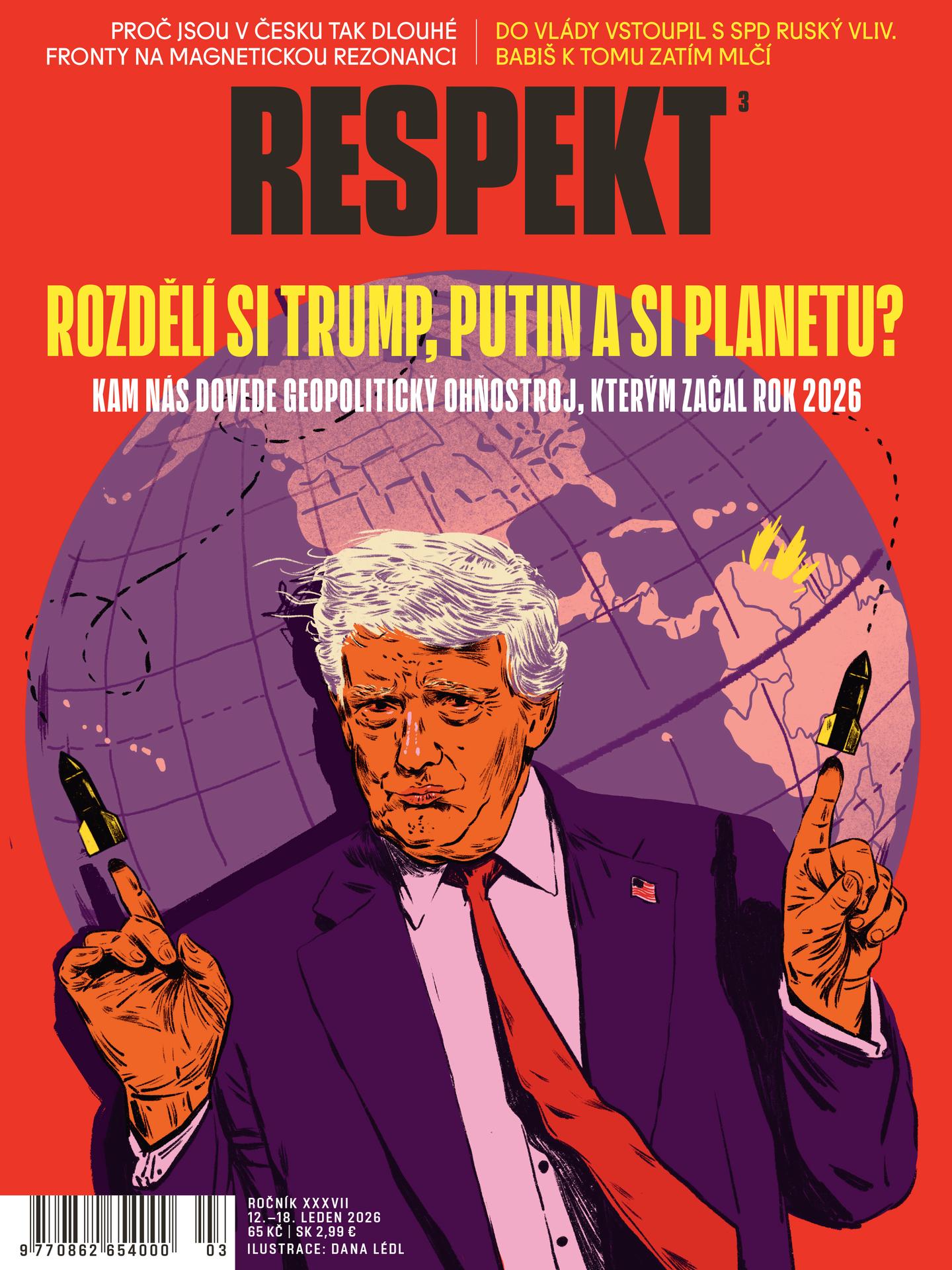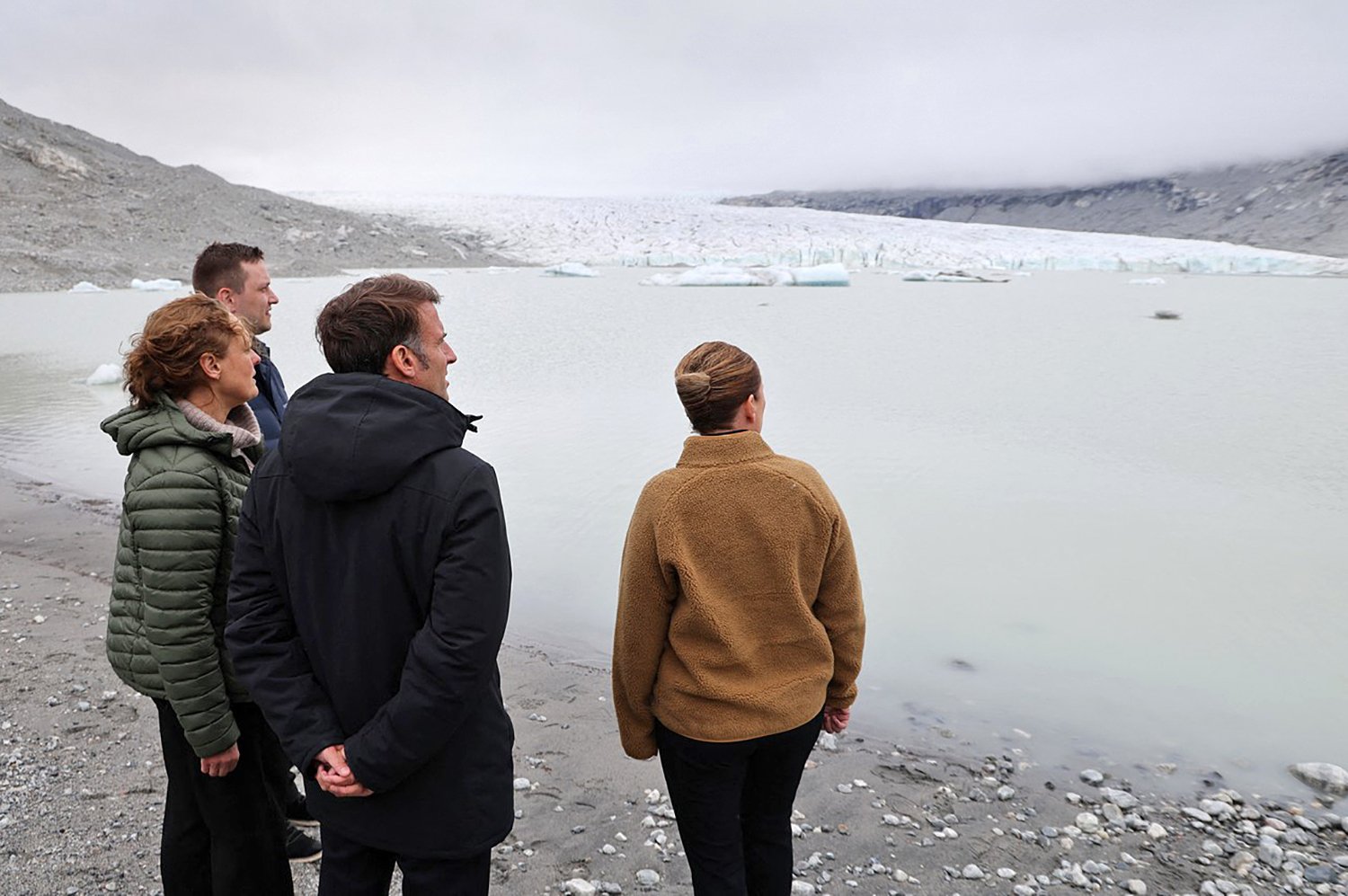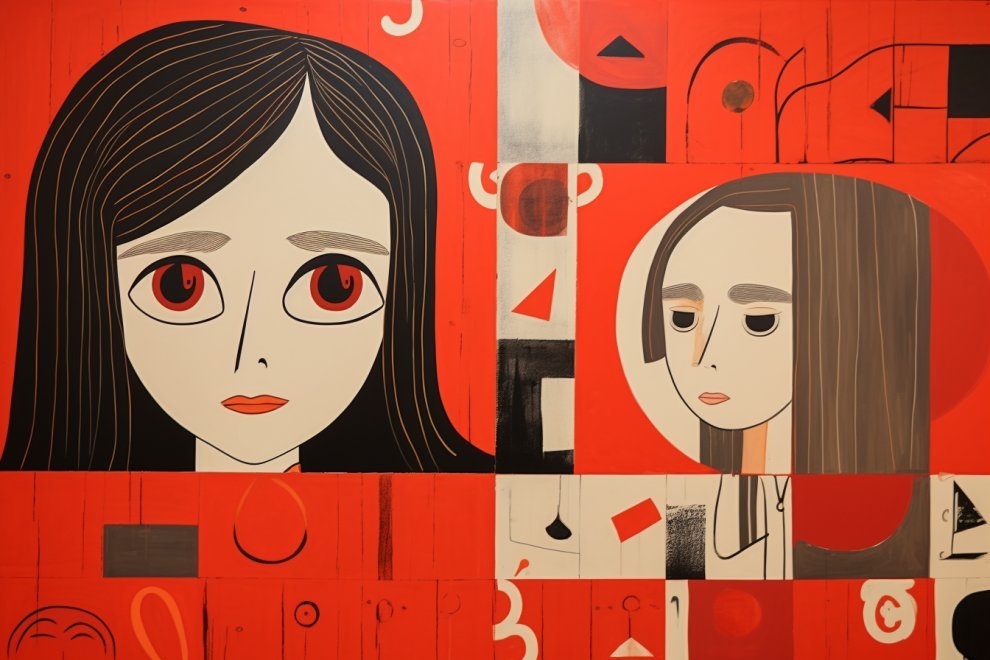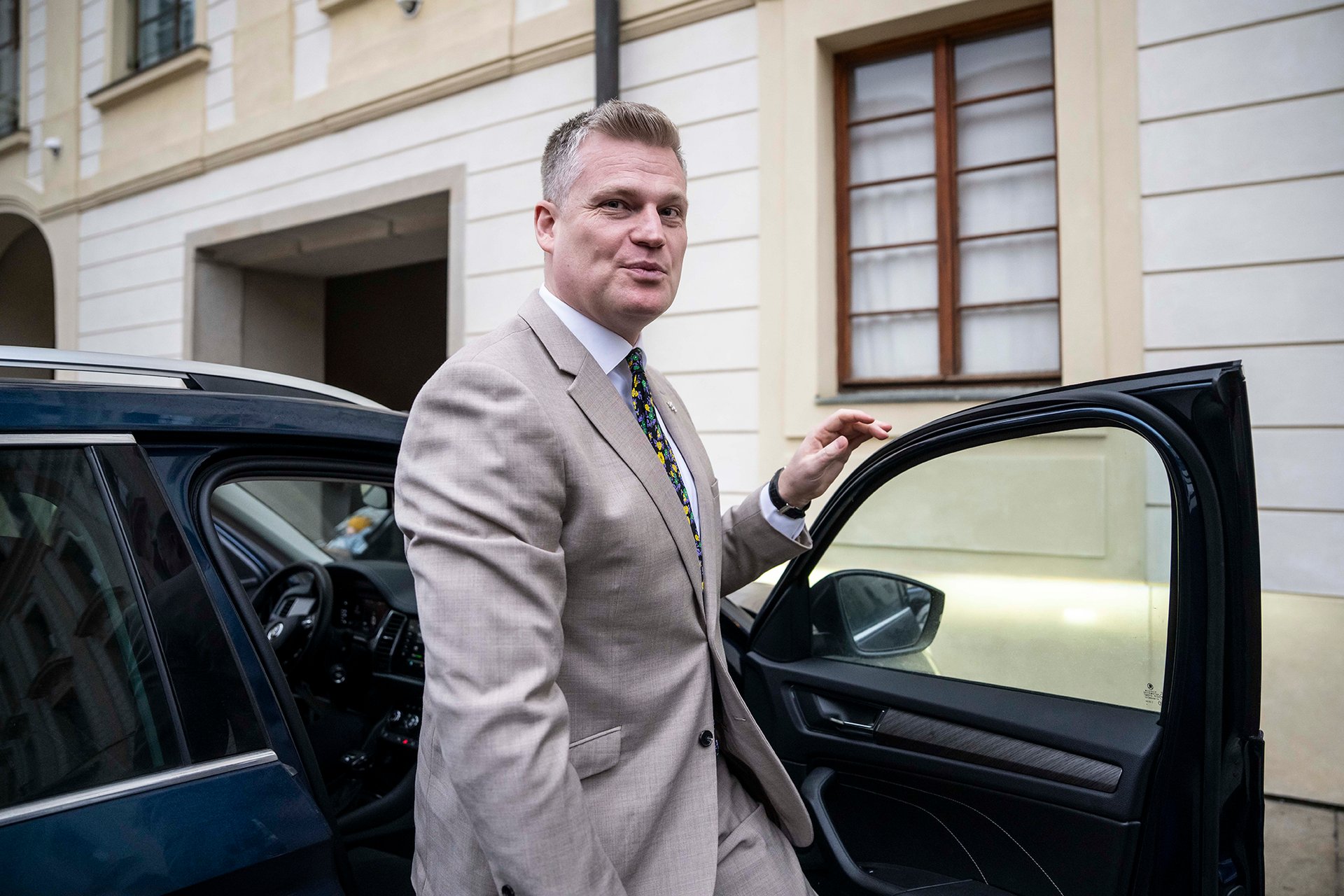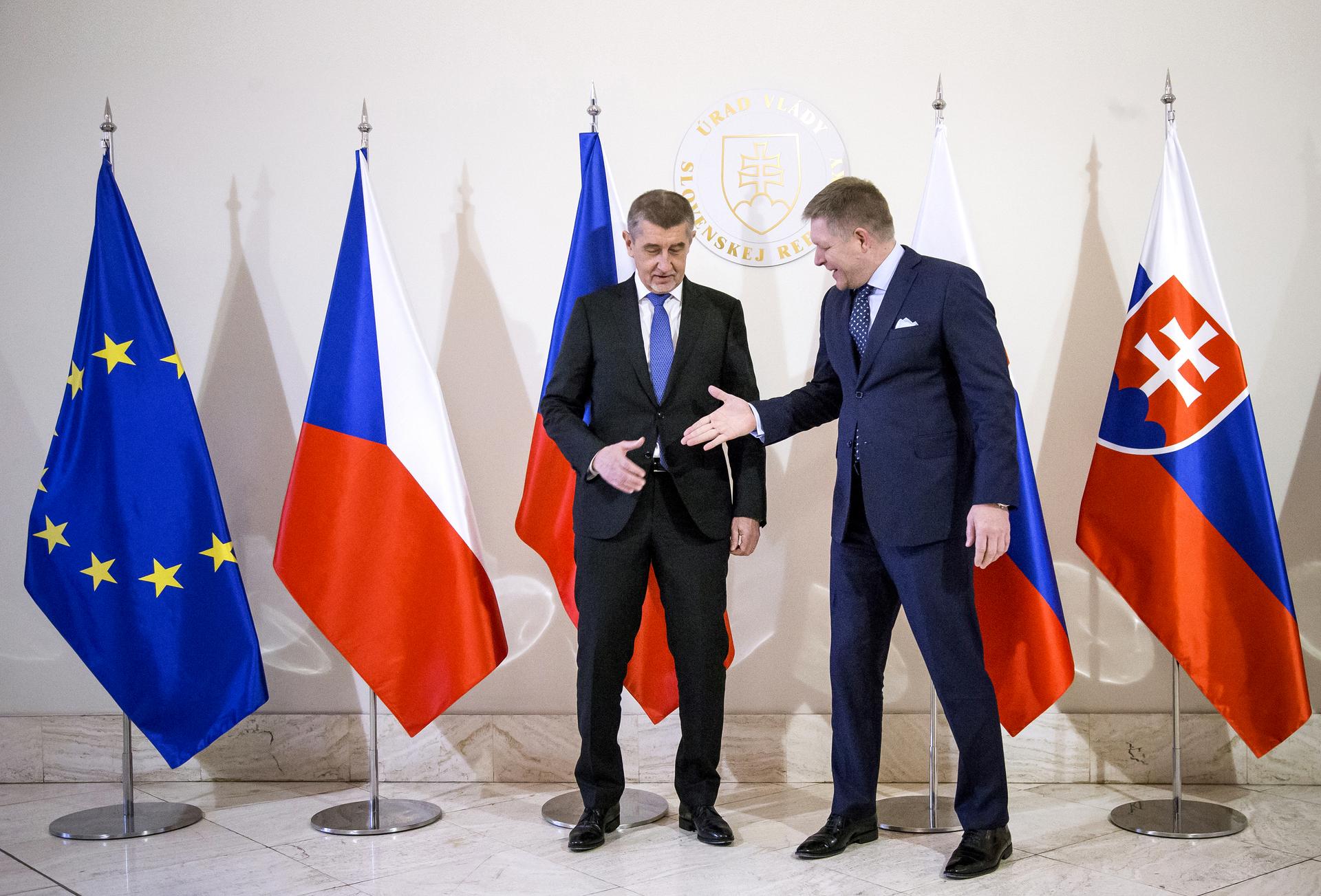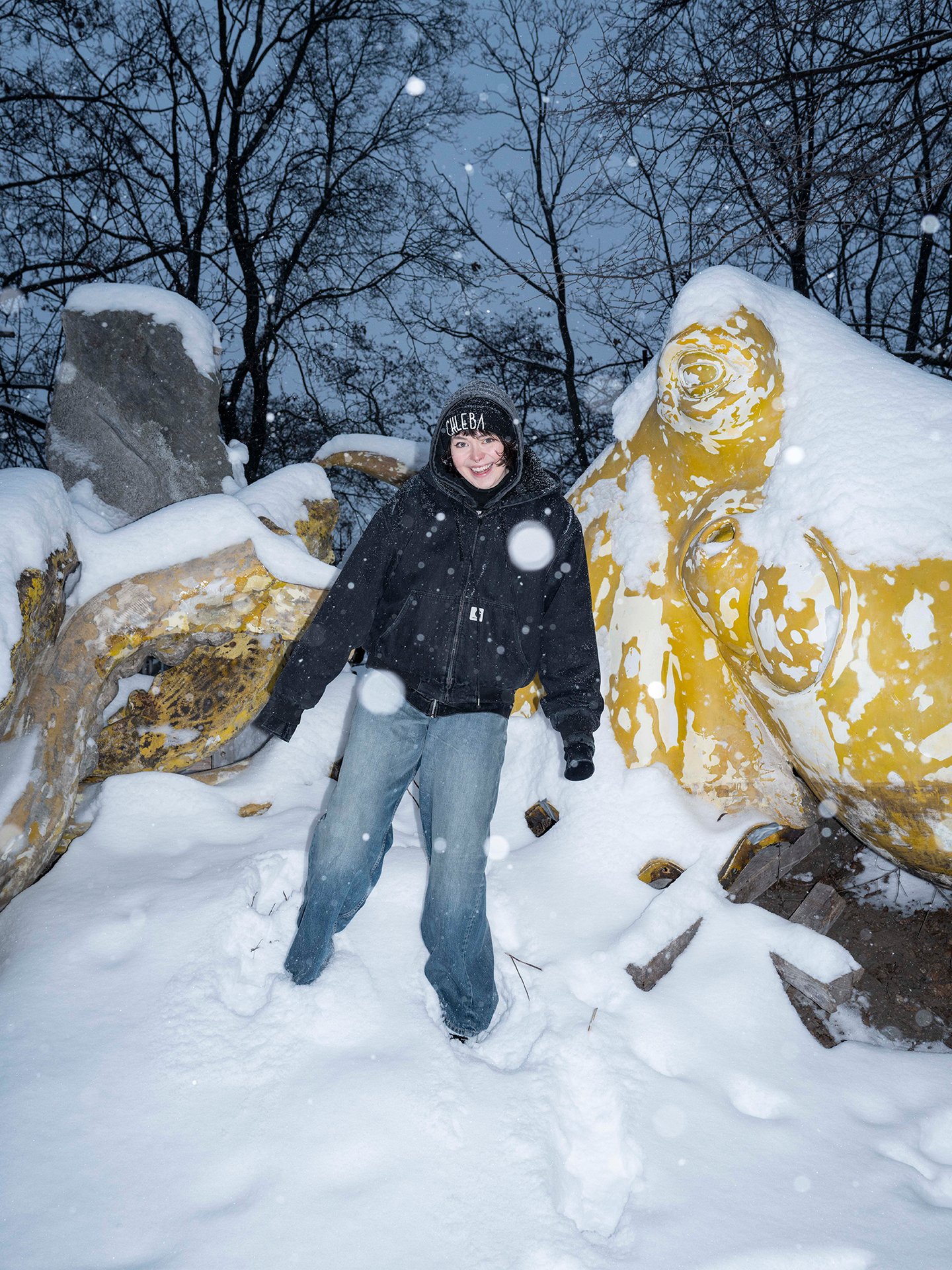Czechs and the EU
CESKE VELENICE, Czech Republic--Walter Wetzmuller, an 83-year-old Austrian, almost paid for his visit to the Czech Republic with his life. At the time, though, he was less than a kilometer from his home in Gmund, having crossed the border just to sit for a while in a restaurant in Ceske Velenice. There he had a stroke that left him sprawled unconscious on the floor.

CESKE VELENICE, Czech Republic–Walter Wetzmuller, an 83-year-old Austrian, almost paid for his visit to the Czech Republic with his life. At the time, though, he was less than a kilometer from his home in Gmund, having crossed the border just to sit for a while in a restaurant in Ceske Velenice. There he had a stroke that left him sprawled unconscious on the floor. And a problem was born. Though there is medical aid nearby on either side of the border, it's not easy to know what to do with an Austrian who collapses on Czech soil.
„We called a local doctor but he refused to come, and didn't even give any reason. So we phoned the hospital in Gmund but they would send an ambulance only to the border. They simply didn't want to go any further,“ recalls a waitress. „I didn't know what to do. I asked them whether I should carry him there [to the border] on my back.“
And that was exactly what one of the restaurant's customers did. He placed Wetzmuller's inert body into his car, drove him to the border checkpoint, and then carried him over to the ambulance. This might seem a somewhat complicated way to deal with a matter of life and death–but that's how things are at our [Czech] border with Europe.
Welcome, folks


Are Czechs within reach of their dream of returning to Europe? For years, agreements, declarations, and politicians have been saying „yes.“ The Iron Curtain lies on the scrap heap, people are free to travel without visas, and the country is very likely to become a member of the EU next year. Nevertheless, the debacle with Walter Wetzmuller shows that even after 13 years of effort, the Czech-Austrian (or Czech-German) frontier still separates two different worlds.
So how can we really establish ties and settle down with our „Western family“? A look at how the two peoples coexist at the point of contact–on the border–says more than any official proclamation about how they understand each other, their interest in each other, and what they know about each other. For this type of research, the market town of Ceske Velenice is truly unique. Not only does it lie directly on the border, but the Czech settlement here also used to form a single unit with its Austrian counterpart, the historic town of Gmund. There is probably no other place in Bohemia or Moravia where people have reason to feel as close a bond with their neighbors over the border as here in Ceske Velenice.
In the past, the everyday life of ordinary people in this Czech-Austrian borderland was a picture of the Europe that Europe is heading toward today. Under the Austro-Hungarian monarchs, Gmund was an administrative center for Czechs and Austrians alike; Czechs went there to school, to work, to shop, to visit the doctor, and to arrange their affairs. There were no checkpoints or customs officers. German was widely spoken by Czechs, and there was no problem making oneself understood. Especially in the 19th century, before a wave of nationalism, Czechs and Austrians had no major problems with each other. After the empire collapsed, a wooden shack-cum-customs office appeared between the last cottage in Velenice and the first one in Gmund, but the border remained open.
The ties were severed only by two cruel totalitarian regimes. First the Nazis expelled Czechs from Velenice, and after the war Czechs threw out the Austrians who had settled in their town. Then the Communists definitively divided the two towns with a wall of barbed wire. Gmund residents slowly became used to hostile frontier guards pointing guns at them from the north, while Velenice soon looked like the rest of the Czech borderlands: overrun with police, its roads rutted, its houses gray, their plaster flaking, deprived of almost any investment. And, to boot, it had a depressing atmosphere somewhat akin to East Berlin: Here too one could see the Iron Curtain close up and a life of freedom just beyond. The fall of the red regime brought a breath of fresh air to Velenice, open borders, and the hope of further development. The promise of EU accession also offered the possibility that the life that had died almost a half-century earlier would be resurrected–a life in which it would seem as if there were no border.
Ours are the ones doing the grilling
It's a Sunday morning in April and life in Ceske Velenice is getting into its usual rhythm. Along the main street with its potholed asphalt and flaking houses, Asian shops are beginning to open. Each has goods hanging everywhere, most of them colorful Chinese towels, backpacks, and shiny clothing. The entrances are all but blocked by crates of Coca-Cola and [Czech] Budweiser beer, and handwritten notice boards lure passersby in to buy 10-kilo packages of sugar. Some soberly dressed prostitutes have been lingering around since early morning: They are barely noticeable as they make come-hither signals to the Austrian cars that trickle across the quiet border.
The passengers get out and look around the shops or head for Velenice's restaurants and bakeries. Other than the Asian shops or a newly opened pedestrian border crossing, these are the only immediately visible signs of the new era for Ceske Velenice. And most of them survive only thanks to customers from the other side of the border.
Several meters over the other side of the border, a visitor finds himself in a different world. Within sight of the customs house lies a town as beautiful as Trebon or Telc [both in the Czech Republic]. Immediately beyond the crossing point, a couple of Czech youngsters are roasting a lamb on a spit and tapping Czech Popovice beer from a keg in front of a Greek taverna.
„We've been hired for a few hours,“ one of them explains as he cuts off the first slices of the roast lamb. Inside the tavern people are celebrating the Orthodox Easter, with lamb as the main dish. „Any guests from Bohemia? No, unfortunately, none came,“ says the grillmaster. „For ours it's still too expensive.“
Nor are there any Czechs in Gmund's baroque square a little further on. The owner of a small Italian ice-cream parlor is the only person to nod when asked about Czechs: „Yes, they come here, and in fact more and more often.“
Where did the butcher´s go?
If someone asks people in Ceske Velenice about the early 1990s, they still recall a story about a young man from Gmund who, in jest, began to light a 100-crown note as if it were a cigarette. The local barflies immediately beat him up and tossed him out of the (ground-floor) window. That, though, is more of a curiosity than anything else. Here, as elsewhere, the fall of the Iron Curtain elicited elation first and foremost. Back then, the Gmund Grammar School collected toys for children in Velenice, while parishioners from Gmund gave out bananas and tangerines in Velenice just before Christmas. People from the Trebon Civic Forum [the opposition movement that helped to overthrow the Communist regime] packed their cars with carp and kegs of beer and arrived in Gmund with two bands. After the barbed wire fences were pulled down, the two towns set aside a 50-acre plot of land in the former no-man's-land for commercial development, and the Gmund Business Academy opened its doors to Czech students for free. Back then, it was not all that difficult to find a job in Austria, and work as waiters, shop assistants, cleaners, and seamstresses could be found in our Western neighbor.
Everything soon went awry, though. Shops in Gmund put up notices saying „Czechs, don't steal here“ and in a survey in 1994 the inhabitants of Gmund associated the Czech Republic with words with negative connotations: Temelin [a controversial nuclear power plant], cheap shopping, pollution, and the like. While roughly the same number of Czechs and Austrians crossed the border in the early 1990s, the balance is now tipped heavily toward the Austrians. Statistics provided by the border police say that on average, 2,500 people cross the border at Velenice every day, and 90 percent of them are Austrians. Almost all of them head for the local shops and restaurants. That has a direct impact on Velenice. There is a pub on almost every corner, and Asian businessmen occupy half of the 40 local shops in the town center.
Slowly, the other stores disappeared: the largest grocery store, the butcher's and the shoe store, while Asian goods could be bought even in the cinema. Velenice's inhabitants are far from enthusiastic about this, but make no loud protests about it. The Asian tradesmen rented their stalls from Czech owners, who get three times the rent they would normally get from a Czech trader: 30,000 crowns a stall, rather than 10,000 crowns.
There is another reason for the relative calm with which the locals have accepted the decline in the number of ordinary shops: Czechs gradually discovered that an increasing number of goods, ranging from shoes to clothes and skis, could be bought more cheaply in Gmund than at home.
When they´re better
Shopping-as-tourism brings money here, but it is a commonly held view that [Czechs and Austrians] don't notice each other, or deliberately avoid contact, in the shops. The best way to make friends or contacts is working or living on the other side–but there is surprisingly little of either here.
While Germans or Austrians are relatively common in other parts of the Czech Republic, none of Gmund's citizens has moved to Velenice permanently–and vice versa. Many local Austrians are quite frightened of an inflow of Czech labor. That's no surprise: There could potentially be strong reasons to find work in Austria. Working in Austria and living at home could allow a Czech to bring home up to four times the average wage in the region. And that is at a time when the unemployment rate in Velenice is twice as high as the 10 percent rate in Gmund. The result is that only a few dozen people are allowed to cross the border each day to work legally. And Gmund's citizens are happy that even the approaching entry of the Czech Republic into the EU entry will change little: For seven years, access to the Austrian labor market will be limited.
„I view that as needless hysteria,“ says Jaroslav Krivan, head of the business park that lies between Gmund and Velenice. „There is no threat of a massive influx of Czechs. Wages in Austria are fixed and Czechs cannot get less than Austrians. There might be a big demand for Czechs if they prove to be better, but so far that doesn't look likely on any large scale.“
It pays to speak Czech
The main obstacle to closer cooperation these days is probably the locals' inability to speak their neighbors' language. One of a few from Gmund who speaks Czech is a journalist from a local magazine, ***Waldvierteler***, Rudolf Korbel.
„For me, emotion played a part. In the 1970s while in France I had the chance to listen to an LP by a Prague underground band, Plastic People [of the Universe]. I didn't understand what they sang about, but their music and that setting attracted me a great deal. In the late 1970s, I took a package tour to Prague and I still remember the atmosphere of a communist country, how they looked underneath our bus with a mirror at the border,“ says Korbel. „Originally I wanted to learn English, but the border was just opening up and I considered Czech more useful.“
First, he started attending a course, then he paid a private teacher. That has opened up a new world to him–and all just beyond his backyard. He married a Czech woman and apparently has more friends there than at home in Gmund. He barely uses his language skills, though. „Once I interpreted for the police and once for Viennese TV,“ Korbel recalls.
Nor has he yet used his Czech as a journalist. „We barely write anything about the Czechs. In fact, we've only written something about prostitution and the introduction of new number plates,“ Korbel says. He also runs a small agency that promotes concerts by Czech rock groups. „Unfortunately, the interest here is minimal. I'd like to do something together, but it's very difficult.“
Hans-Martin Vischer, a surgeon and senior consultant at the hospital in Gmund, sees language as the biggest obstacle he faces. „I go to Bohemia about five times a year. I'd like to go more often but I have no friends there, not even among doctors. Czech is too complicated a language for me and, unfortunately, I have no time to study it. But I do feel there's a big opportunity opening up for Austrians. In five or 10 years' time we'll drive to Ceske Budejovice as often as we go to Vienna now. The EU will bring about the change.“
The head of the business park, Krivan, who also lives in Gmund, shares his view. „Vienna is a two-hour drive away from here and Budejovice just an hour. Top management posts in the Czech Republic are already attractive for Austrians, and within 10 years that will be the case not just at the top, but also in middle management and other levels. I try to explain to them that it pays to know Czech.“
Two languages? Too many
The people of Ceske Velenice have one indisputable advantage over their neighbors: if they learn the language of their counterparts over the border, they gain knowledge of an international language and a means of communicating across Europe. Despite that, the time when German was spoken by everyone is long past, and only a few are willing to learn it again.
„About a half the locals can speak a little German, and some 5 percent can hold a conversation in German,“ thinks Wolfgang Seyer, who is living temporarily in a friend's house in Velenice and commuting to work in Vienna.
Even if someone wants to study German, they'll find it won't help them very much.
There are no German classes available these days. Only two local firms pay for lessons for their employees. Those who want to study Czech have to go to Ceske Budejovice. Neither the mayor of Velenice nor the school principal speaks the language of their neighbors. At school, children choose either English or German in their fourth year, and the interest is split roughly down the middle Parents who plan to send their children to university or college usually choose English, while the children of local businessmen usually plump for German.
„We don't plan to introduce German as a compulsory subject,“ says the principal, Josef Kropik. „After all, English is a gateway to the whole world, and two foreign languages would be too many.“
Even an opportunity undreamed of elsewhere has no influence on parents. This small town only has a vocational college where students can get an education to the age of 18 and learn to repair trains. But just a few minutes' walk beyond the border in Gmund is the Academy of Economics, which has been accepting about 20 students from the Czech Republic each year since the mid-1990s. They pay nothing. This year everyone who applied was admitted into a preparatory class. Twenty-five applied.
One of the senior students is Petr Sikula, from Cesky Krumlov. „My parents saw an ad, so I applied,“ explains Petr. On weekdays he lodges in Velenice, some 15 minutes' walk from the school. His modern school with its gym and big playground lies just beyond the pedestrian crossing, near the River Luznice. The differences from a Czech school are visible the minute you step into the entrance hall: The changing rooms are completely open, and next to them are computers with Internet connections freely accessible to everyone.
„It's different here; they don't steal,“ says Petr, who explains that getting a place here was surprisingly easy. „All you need is to speak German well enough to get through the year of classes before normal study begins.“ At present about one-tenth (or 50) of the academy's students are Czech, and three of them are from Ceske Velenice. „All I need to pay is a couple of dozen euros for textbooks at the start of the school year. We don't have any problems here. They simply take us as regular schoolmates.“
Don´t disrupt our classes
Due to the language barrier and the surprisingly low interest in the language, it is not that easy to find projects in the region that Czechs and Austrians are working on together. Both town halls are controlled by Social Democrats, but apart from setting up the business park in the early 1990s, their only joint action is a planned cleanup of the Luznice, which flows through both Velenice and Gmund. The municipalities also try to coordinate building plans in areas where the two towns meet. And that is all.
The local schools are hardly falling into each other's embrace either. On the German-Czech border, some schools arrange for student exchanges one afternoon a week. Here, in Gmund and Velenice, they haven't even tried. „There is no interest. In fact, we hadn't even thought of that,“ says Josef Kropik, the principal of the primary school. „I suppose it would disrupt our teaching,“ adds his deputy, Mirka Cejkova.
Over the past 13 years, the schools have only once celebrated Shrove Tuesday together. And this year the Gmund side invited Velenice's schoolchildren to take part in a sports day in June. To back up his claim that there is little interest in joint events, Josef Kropik mentions a trip to the distant Austrian town of Grastem that the school organized last year. „The children had a sports day, a ceramics workshop, a bonfire, and they stayed with their Austrian schoolmates' families. But they mainly chatted in English. It would have cost [Czech] parents just 100 crowns this year, but we wouldn't have filled the bus. There is no interest,“ says the principal. „Even among the teachers. We have four teachers who speak German and the rest of us speak none. So what would we do there–just watch them?“
In neither of the towns is there a place where someone can learn more about their common history. In the 1990s, a history of Ceske Velenice was published in Czech, but an unbiased reader soon becomes irritated at its anti-German tone. There is a very extensive book on the history of Gmund in German, but it hardly contains a word about Ceske Velenice. The Gmund Museum houses a collection of stones and an exhibition on glass manufacturing, but nothing on where to find a common wavelength between the two nationalities. There is no cross-border radio or paper: In short, nothing where neighbors can find out about the others' lives.
„Yes. That's true,“ says Vischer. „I've been living here for 10 years and it's just a hop to the Czech Republic. I don't, however, know what the people from the other side think or how they live.“
The horrors beyond the checkpoint
What do people who have a chance to foster a Czech-Austrian rapprochement think about all this?
„It's hard for me to find a reason for so little activity,“ says Velenice's mayor, Jaromir Sliva. „Certainly it has nothing to do with an aversion toward Austrians. It probably depends on individuals doing something, and there seems to be no one who's gripped by the notion.“
Karl Immervoll from Heidenreichstein, some 20 kilometers away from Gmund, is a one of the few of that breed. This theologist and music teacher established an association called Limes that organizes informal language courses, Czech-Austrian organ concerts, and trips by Austrian trade unionists to Czech companies.
„For many years, the people of Gmund saw only soldiers on the other side of the border and heard that there was something awful going on beyond the checkpoint. That fear, of course, had an effect on them,“ Immervoll believes.
Recently things have begun to change, though. Since last year, 30-year-old Martin Freytag has commuted daily between Vienna and Gmund to improve Czech-Austrian relations, a job paid in part by Brussels and in part by Vienna.
„The problem is that the border is deeply rooted in people,“ he explains in Czech. „Nevertheless, it's changing gradually. Just today I overheard two conversations in a train about the need to learn Czech.“
There is no official counterpart of Martin Freytag on the Velenice side of the border, but Lenka Ctvrteckova is the unofficial catalyst for greater Czech-Austrian coexistence. She moved to Velenice from Usti nad Labem [in North Bohemia] shortly after the change of regime. A boarding-school principal by profession, she came and started her own business, first renting a local swimming pool, then taking on debt to buy a pub. To pay her debt off she went to work in a pub in Gmund.
„Ever since I arrived, I've been trying to understand why it's so difficult to do something together,“ says Ctvrteckova. „Small-town envy plays a part. Almost every other person here worked for the secret police, and people are used to moaning about everything. It takes a long time for them to accept anything new. They swear at the Austrians, but when they get to know someone they make very loyal friends.“
Last year Ctvrteckova decided to start Czech-Austrian balls in Velenice's town hall. She had posters printed with a slogan ‚Temelin, and we are still friends‘ and she sold half the 500 tickets in Velenice, the other half in Gmund. „I also phoned the mayors, but they didn't come. This year it was a bit better. I didn't let them brush me off and I called them three times asking whether they would come. Again, they intended not to come but when they heard the other had said yes, they agreed,“ she says as she recalls the biggest Gmund-Velenice event ever. „I sat them together at one table.“
Patient without a passport
Gmund and the area around it will never be the transport hub that it was when the railway was first built. Express trains between Prague and Vienna now go via South Moravia, the industrial tradition is gone, and the countryside on either side of the border is more a lure for people in search of unpolluted nature and tourism than for industrialists.
„In a way, Gmund and Ceske Velenice will remain the end of the world,“ says Krivan. „The era of huge investment in areas far away from the big centers of population is over. A couple of small businesses are better for us than one big company.“
Nevertheless, joining the EU will change the region. People will live next to each other, and closer and closer cooperation will become a must. Grand plans for the future are overshadowed, though, by an entirely practical problem: how to arrange it so that people from Velenice can, in an emergency, use the nearby hospital in Gmund. Last year's events–including the collapse of the 83-year-old Wetzmuller–made Vischer grope for a way to open up his hospital to Czech patients.
„It's good for both sides,“ says Vischer. „The closest Czech hospital is 60 kilometers away in Budejovice. We are literally around the corner, and we need to use our doctors and the hospital. Paying for it is the problem.“
He drew up a petition with his friends, then carried out a survey in Velenice to ask how much extra people would be willing to pay to be treated in Gmund. More than half of the people in Velenice said they would be ready to pay 100 crowns a day.
„We won't succeed, it seems,“ says Petra Zimmelova, the main person to have taken up the issue in Velenice. „The Czech government seems to be afraid that it might look as if it was not able to take care of 3,500 people. And the Austrians are also causing problems. Until we join the Schengen Agreement, which will get rid of the border here, officials are likely to insist that even a man in an ambulance must go through a standard border check. Apparently, we need to wait until we're a completely ordinary member of the EU.“
Translation by Eva Pilatova.
Pokud jste v článku našli chybu, napište nám prosím na [email protected].

